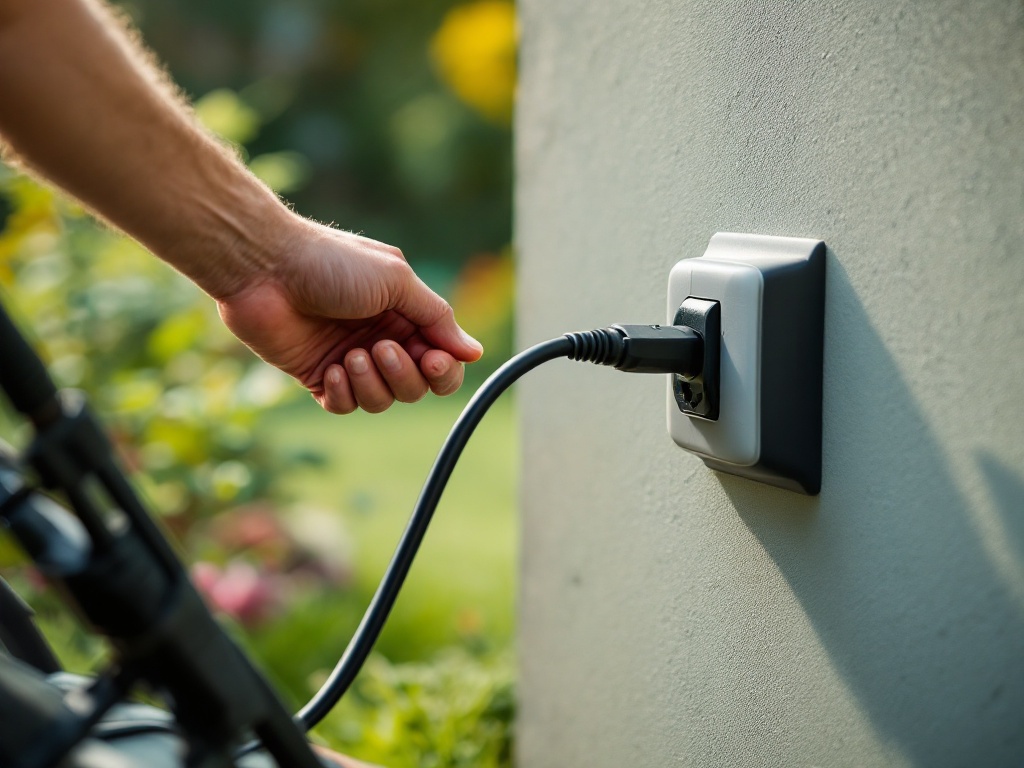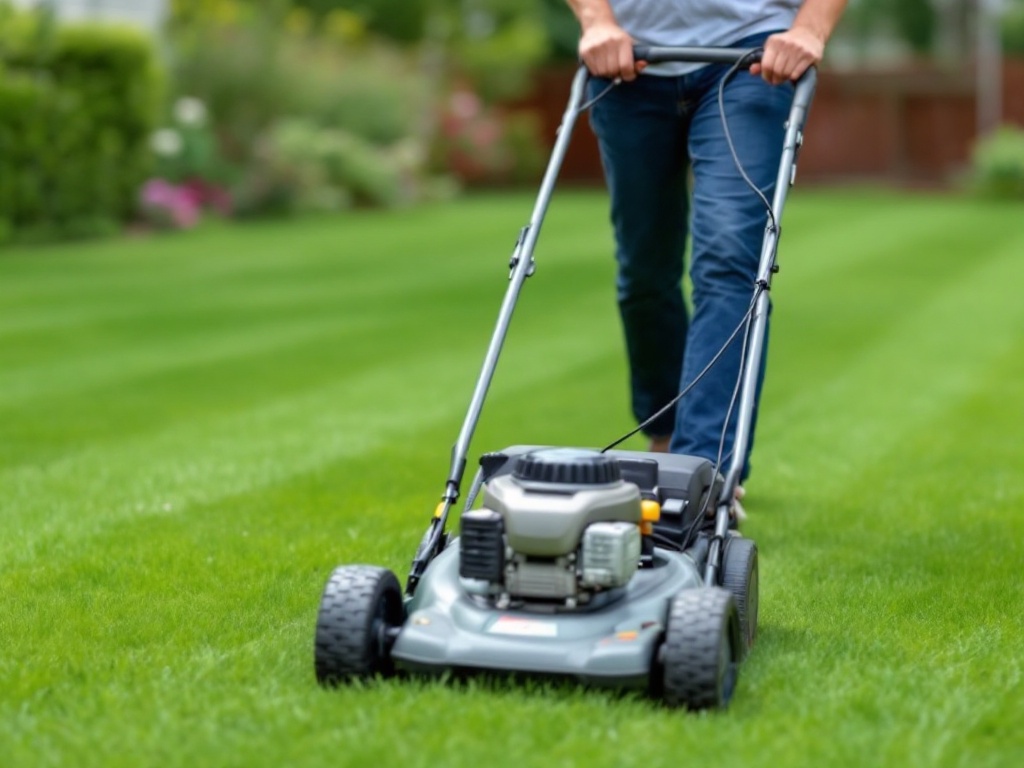When it comes to maintaining a small lawn, choosing the right mower can make a world of difference in terms of convenience, efficiency, and performance. Two of the most common types of lawnmowers available today are corded and cordless mowers, both of which have their unique advantages and drawbacks. While they may seem similar at first glance, understanding their differences will help you decide which one is the best fit for your needs.
In this post, we will compare corded and cordless mowers, evaluating key factors such as power, performance, ease of use, maintenance, and overall value for small lawns. By the end of this article, you’ll have a clear understanding of which mower will make your lawn care routine easier and more enjoyable.
What is a Corded Mower?
A corded lawnmower is powered by electricity and requires you to plug it into an outdoor power outlet using an extension cord. These mowers typically offer reliable, consistent power, which makes them well-suited for users who have access to a power source near their lawn.
Pros of a Corded Mower
- Continuous Power Supply: As long as the mower is plugged in, it doesn’t lose power, meaning you can work as long as needed without interruption.
- Cost-Effective: Corded mowers are generally more affordable than cordless models, making them a good option for those on a budget.
- Lightweight Design: Corded models tend to be lighter compared to cordless mowers, making them easier to maneuver, especially on smaller lawns.
- Environmentally Friendly: Since corded mowers run on electricity, they produce no emissions and are considered a more environmentally friendly option compared to gas-powered mowers.
Cons of a Corded Mower
- Limited Range: The length of your extension cord limits how far you can move around your lawn, which could be an inconvenience if your lawn is scattered with obstacles.
- Tripping Hazard: The power cord can pose a tripping risk, particularly if it gets tangled or if you’re mowing around corners and obstacles.
- Extension Cord Requirements: You need to purchase a long, durable extension cord, which could add to the initial cost of using a corded mower.
What is a Cordless Mower?
A cordless mower, on the other hand, is powered by rechargeable batteries, making it a more flexible option compared to its corded counterpart. These mowers are becoming increasingly popular due to their convenience and portability.
Pros of a Cordless Mower
- No Cord to Manage: Cordless mowers eliminate the need to deal with extension cords, which means you can freely move around your lawn without worrying about getting tangled up or being restricted by the cord’s length.
- Portable: Cordless mowers are generally lightweight and easy to transport. This makes them a great choice for small lawns or for users who need to store the mower in tight spaces.
- Quiet Operation: Cordless mowers are typically quieter than both corded and gas-powered mowers, which can make mowing your lawn a more peaceful experience.
- Environmentally Friendly: Like corded mowers, cordless mowers produce zero emissions since they don’t require gasoline to operate.
Cons of a Cordless Mower
- Battery Life: One of the biggest drawbacks of cordless mowers is their limited battery life. Depending on the size of your battery and the lawn’s condition, you may need to recharge the battery before finishing the task.
- Higher Initial Cost: Cordless mowers tend to have a higher upfront cost compared to corded models due to the technology involved with the battery and the convenience it offers.
- Battery Wear Over Time: Over time, the battery’s capacity to hold a charge may diminish, which means you may need to replace the battery to maintain optimal performance.
Key Factors to Consider for Small Lawns
When choosing between a corded and cordless mower, several important factors should guide your decision-making process. Here’s a closer look at the main factors you should consider.
1. Power and Performance
- Corded Mower: A corded mower generally provides consistent, uninterrupted power. It’s a great option for smaller lawns because the power will not deplete while mowing. However, the need to stay close to an electrical outlet can be restrictive if your lawn is not within reach.
- Cordless Mower: Cordless mowers are battery-operated, which means they are more versatile and portable. The performance of a cordless mower is directly impacted by the battery life. On a small lawn, this may not be an issue, but as the battery drains, the power will diminish, which could affect performance. It’s important to choose a cordless mower with a high-capacity battery if you want consistent results throughout the job.
2. Ease of Use
- Corded Mower: Corded mowers are lightweight and easy to use, especially if your lawn is flat and free of obstacles. The biggest challenge with a corded mower is managing the extension cord. It can be tricky to avoid tangling the cord or accidentally running over it while mowing.
- Cordless Mower: Cordless mowers offer the ultimate convenience, as you’re not tethered to an outlet. The portability and lightweight nature of most cordless mowers make them easy to use for small lawns. However, users may have to stop and recharge the battery if they don’t have a backup.
3. Maintenance
- Corded Mower: Maintenance is generally easy with a corded mower. Since there are fewer moving parts, you don’t need to worry about replacing a battery or dealing with charging issues. You’ll only need to clean the mower and replace parts like the blades when needed.
- Cordless Mower: Cordless mowers require regular charging, and over time, battery life may degrade, leading to a reduction in performance. Additionally, you’ll need to replace the battery if its ability to hold a charge diminishes, which could increase your long-term maintenance costs.
4. Cost
- Corded Mower: Corded mowers are generally more affordable upfront than cordless models. They provide excellent value for money, especially for small lawns where the cord length isn’t a major issue. However, you may need to purchase a high-quality extension cord, which could add to your costs.
- Cordless Mower: Cordless mowers are typically more expensive initially due to the battery technology. However, many people are willing to pay a premium for the added convenience and portability. Keep in mind that battery replacements can add to the total cost over time.
5. Environmental Impact
- Corded Mower: Corded mowers produce no emissions and are typically more energy-efficient than gas-powered mowers. However, if you’re concerned about the environmental impact of electricity generation in your area, it’s worth considering the source of the power you’re using.
- Cordless Mower: Cordless mowers also produce no emissions, making them an eco-friendly choice. They run on rechargeable batteries, which can be more sustainable than using gasoline. However, the disposal of batteries may contribute to environmental waste, so it’s important to recycle or properly dispose of them.
Which is Better for Small Lawns: Corded or Cordless?

When deciding which mower is better for small lawns—corded or cordless—it ultimately depends on your personal preferences and the specific needs of your lawn. Corded mowers are ideal for smaller, flat lawns with easy access to an outdoor power outlet, offering continuous power, affordability, and a lightweight design. However, they require managing a power cord, which can be limiting and potentially hazardous as you mow around obstacles. On the other hand, cordless mowers provide more flexibility and ease of use, as they eliminate the need for a cord, making them perfect for those who prioritize portability and a quiet, hassle-free mowing experience. If you’re looking for a more advanced solution, a remote lawn mower can also be an option for small spaces, offering even more convenience and reducing the need for direct interaction. Although cordless mowers are typically more expensive upfront and require battery maintenance and replacement over time, they offer a more convenient and unrestricted mowing experience. Ultimately, the right choice depends on whether you prefer a more cost-effective and low-maintenance option with a cord or a quieter, more portable solution without the need for a cord but with higher long-term costs.
Conclusion
In conclusion, both corded and cordless mowers have their place in lawn care, and the choice largely depends on your lawn’s layout and your personal preferences. If you have a small lawn with easy access to an outlet and don’t mind managing a power cord, a corded mower might be the most practical and affordable option. However, if you prefer more freedom of movement and quiet, hassle-free operation, a cordless mower is an excellent choice, provided you’re comfortable with the higher initial cost and battery maintenance.
Ultimately, both types of mowers will get the job done for small lawns, so it’s up to you to weigh the factors that matter most. Whether you go corded or cordless, you’ll enjoy a more efficient and satisfying mowing experience with the right tool for the job.

